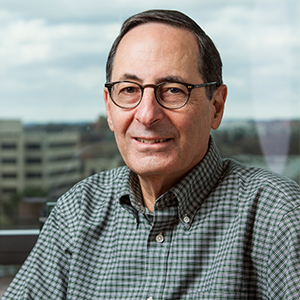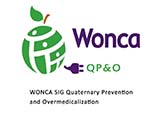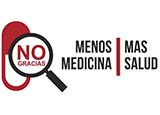Get to Know Our 2019 Keynote Speakers
We have been in touch to find out a bit more about their research interests & how Overdiagnosis and Overtreatment affects their practice & local setting. Interested media please contact Tom Dakin University of Sydney
From North and South America
BARRY KRAMER
A leading global authority on cancer overdiagnosis and recent Director of the Division of Cancer Prevention, NIH National Cancer Institute, USA.
What is your most proud or significant research achievement?
My proudest achievements have involved team science—working with a large group of investigators to design and conduct practice-changing randomized controlled trials in cancer screening. These have included the Prostate, Lung, Colorectal, and Ovary (PLCO) Trial, the National Lung Screening Trial (NLST) of low-dose lung CT scans, and most recently the design and launch of the ongoing Tomosynthesis Mammographic Imaging Screening Trial (TMIST) comparing standard 2D digital mammography with and without 3D tomosynthesis. These studies were designed not only to determine the benefits and harms of the screening tests being studied, but to study the possibility of screening-mediated cancer overdiagnosis. Several of the studies have associated biorepositories to help study overdiagnosis at the molecular level.
How is overdiagnosis and overtreatment affecting your field in your country?
The United States healthcare professionals and the public have typically been early adopters of screening tests, under the assumption that early detection of cancer will always be of benefit. With the widespread adoption of screening tests has come mounting evidence of overdiagnosis of a number of cancers. Increasing recognition of cancer overdiagnosis over the last 15-20 years has led to a more nuanced understanding of cancer screening and cancer biology. In turn, this better understanding has led to studies to identify overdiagnosis at the population, clinical, and molecular levels. The goal is to maintain any benefits of screening while mitigating the harms, including the employment of “watch-and-wait” management strategies that could decrease overtreatment.
What is your favourite place or thing to do in Sydney/Australia? If this is your first visit, what are you most looking forward to seeing or doing?
This will be my first visit to Australia. I am particularly interested in seeing the Australian Museum of natural history and some sites of ancient Aboriginal rock art. I’ve also heard a great deal about Bond Beach and would like to visit it. Of course, one of the best parts about the trip is seeing colleagues I’ve met through my involvement in the Preventing Overdiagnosis conference over the years.
If you weren’t working in this field, what do you think you would be doing?
I am most excited by the field of public health, so I suppose I would have gravitated to some other aspect of public health research. However, if you are asking about career aspirations that have nothing to do with public health or biomedical science, I would have been interested in science history or photography (if only I had any talent in either area).
What do you like to do in your down time?
I am an avid reader, particularly in the areas of history of science and history of medicine, as well as books on physics, mathematics, and statistics written for stupid people. My wife and I enjoy listening to classical music and attending symphony. We also go to photography exhibits at our national museums; I pour through photography books by great photographers and try to learn how to aim a camera better before I trip the shutter.
ANA ROSENGURTT
Citizen advocate who has led a courageous fight against mandatory breast cancer screening in Uruguay.
What is your most proud or significant research achievement?
I’m not exactly a researcher on health subjects. I’m a computer engineer. My most significant research led me to discover overdiagnosis while I fought for my human rights.
How is overdiagnosis and overtreatment affecting your field in your country?
In my country is mandatory to undergo health checks each 2 years for all workers. Otherwise I’m not allowed to enter into my job office. I am seriously in risk to be a victim of overdiagnosis. Mandatory checks include: mammography, PAP smear, blood test, urine test, dental check.
What is your favourite place or thing to do in Sydney/Australia? If this is your first visit, what are you most looking forward to seeing or doing?
It will be my first time in Australia.
I’d like to see outdoors and natural places as the Blue Mountains, Uluru, Kings Canyon Rim walk.
In Sidney: Darling Harbour, the Royal Botanical Garden, Queen Victoria Building, The Rocks, Newtown
What is your favourite place in the world?
I’ve liked Edinburgh very much.
I prefer to live close to the beach.
What is something that others may be surprised to learn about you?
I think people at the conference may be surprised because I’m not a health professional. I’m just a citizen who won a lawsuit against my government in 2016 to avoid overdiagnosis due to mammographic screening and now I’m leading a movement to stop all mandatory checks in my country. This short article would be my best CV:
 BRENDA WILSON
BRENDA WILSON
What is your most proud or significant research achievement?
I have never produced a scientific breakthrough or won awards for any of my research. Being much closer to the end than the beginning of my career, I understand the value of the long view in judging success. I always wanted to make an impact on people and systems, but we almost never see the effects of our influence directly, or quickly. So, I see as significant having successfully stuck around for so long with my constructively sceptical message about genetics and genomics in the health system. And what makes me most proud is being part of what comes after: the students and colleagues whom I’ve advised, supervised, and mentored over the years. I see so many of them making a difference in their own fields, keeping the faith in good science, valuing collegiality and collaboration, and paying it all forward to their own protegées.
How is overdiagnosis and overtreatment affecting your field in your country?
Where to start? What I see in Canada is what happens when we don’t invest, as a society, in teaching people at a young age to think critically about anything, but particularly health and science. A lot of this tracks through to health professionals, many of whose excellent clinical expertise is not matched by an ability to discuss simple risk ideas as they apply to patients, let alone concepts of overdiagnosis. (I don’t think this is a specifically Canadian problem.) Speaking as a voting member of the Canadian Task Force on Preventive Health Care, I’m getting very used to this, but it is compounded by the well organised resistance we get from professional advocacy groups when they don’t like one of our recommendations. As often as not, we send a signal to practitioners that they should communicate with patients about pros and cons of screening, and help the patient work out where her preferences lie. We know this is not easy, but it’s the most honest and ethical representation of what the evidence says. Apparently, many specialist groups do not agree, but instead of a debate based in evidence and conducted in good faith, we encounter well-orchestrated push-back using the media, but sometimes also pulling in patient advocacy groups. We recently updated our breast screening guidelines with conditional recommendations about mammography. Each one of us task force members still gets personal emails to our individual professional addresses from patients telling us their own cancer story and asking us to reconsider. I stand behind our work because I know the evidence. But I am unhappy about medical professionals with privileged status misleading the public, patients, and families. Whether or not this is based on ignorance - or cynical disregard – of the evidence, it helps maintain a climate where overdiagnosis and overtreatment are dismissed as irrelevant or even a fiction.
What is your favourite place or thing to do in Sydney/Australia? If this is your first visit, what are you most looking forward to seeing or doing?
I’ve been lucky enough to have been to Australia several times in the last five years, and it holds a really special place in my heart. I’m definitely an edge person – I want to be as close to the ocean as I can possibly make it – which probably explains everything about my decision to move to Newfoundland. Like a parent who won’t play favourites with her children, I love Sydney and Melbourne equally but differently. Who could visit Sydney and not embrace its lust for life - and of course I fantasise about living right on the harbour or the ocean. And Melbourne is, I think, my real home in a parallel universe, with its perfect fit of mellow vibe, grown up culture, and most excellent coffee. (Though perhaps dial down the hipster quotient.)
What is something that others may be surprised to learn about you?
My current favourite hobby is learning to powerlift. I started weight training a couple of years ago for health reasons, and now (almost) nothing makes me more satisfied than the perfect deadlift or bench press. Planning to be ready for competition by the time I’m 70.
What is your favourite cuisine?
Indian food, no hesitation, since I had my first chicken biriyani as a teenager. If I can’t find a good restaurant or take out, I will make it from scratch myself. Close second would be Scottish Classic – haggis, tatties and neeps. I have been known to combine these at parties as representatives of Scotland’s two most typical dishes - haggis and chicken tikka masala - but not usually on the same plate.
From Europe
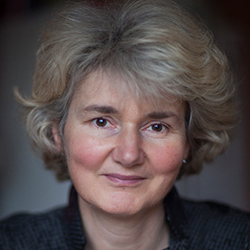 FIONA GODLEE
FIONA GODLEE
Editor-in-chief of The BMJ, which is leading global scientific debate about the problem of overdiagnosis.
What is your most proud or significant research achievement?
As an editor, publishing our series on overdiagnosis and developing the journal’s campaign on Too Much Medicine https://www.bmj.com/too-much-medicine
How is overdiagnosis and overtreatment affecting your field in your country?
I worry about the medicalisation of prevention, with ever lower thresholds for starting drug treatment for what are largely diseases of the living environment. These bring with them cost and harm, turn people into patients, drain professional resources, and divert attention away from vital social and environmental change.
What is your favourite place or thing to do in Sydney/Australia? If this is your first visit, what are you most looking forward to seeing or doing?
I’m hoping to go for a swim in the sea - perhaps off Bondi beach.
What is something that others may be surprised to learn about you?
I find writing difficult.
What is your favourite cuisine?
Chocolate
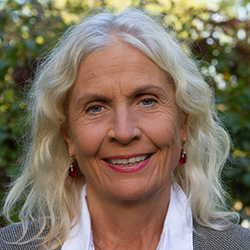 ANNA STAVDAL
ANNA STAVDAL
President elect of the World Organization of Family Doctors, a peak body for groups representing more than 500 000 family doctors and general practitioners around the world.
What is your most proud or significant research achievement?
I am not a researcher, but I have been engaged in professional development in family medicine for more than 25 years.
I was in lead of the process behind the Norwegian definition of family medicine/ general practice
“Seven Principles of good medical practice for General Practitioners” published in 2001, the year the list system was introduced in Norway.
In English translation, one of the principle reads:
Principle 4. Use words that are health-promoting
The GP shall give patients confidence in their ability to master and manage their own daily lives and to care for their own health. General practice shall develop a language which limits the focus on risk conditions and restricts the use of medication with little beneficial effect.
This principle alludes to the Oath of Hipporcrates and the “Primum non nocere” and addressed the rising trend of OD/OT.
The “Seven principles” has stood its ground and still proves to be a valuable tool in education, in professional development and in advocacy.
How is overdiagnosis and overtreatment affecting your field in your country?
OD/OT is a trend which is impacting all parts of health care in my country. As a family doctor I meet the consequences on an every day basis in my practice.
It is a balancing act, on one side to protect my patients against unnecessary being diagnosed and treated, - and at the same time not contribute to reduce their trust in our health care.
What is your favourite place or thing to do in Sydney/Australia? If this is your first visit, what are you most looking forward to seeing or doing?
It is my first time in Sydney, my first time in Australia. So I am looking forward to find out if Aussies live up to their reputation!
What did you want to be when you grew up?
Depending on my different moods: An actress, a journalist or a spy
What is something that others may be surprised to learn about you?
That I grew up with Norwegian folklore, was a passionate folk dancer and instructor for many years. And that I have portrayed Elvis Presley in a show.
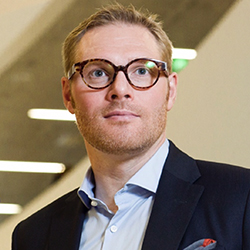 TEPPO JÄRVINEN
TEPPO JÄRVINEN
Orthopaedic surgeon who is a leader in the scientific debate about overdiagnosis, unnecessary operations and too much medicine, based at the University of Helsinki, Finland.
What is your most proud or significant research achievement?
Firstly, managing to convince my peers that setting up the Finnish Centre for Evidence-Based Orthopedics (FICEBO, www.ficebo.com) is a great idea. It has been an absolute pleasure to work with my great colleagues in resisting the unhealthy expansion of medicine. Our vision is that only practices that are scientifically proven as effective should be offered to patients. We believe that this will lead to a more sustainable healthcare system that best serves our patients and society at large.
On a more concrete level, I am very proud of our placebo-surgery controlled trials on knee and shoulder arthroscopy (with the hip to follow shortly), as well as, a set of three analysis pieces for the BMJ critically analysing the current management strategies for the prevention of fractures in the elderly.
How is overdiagnosis and overtreatment affecting your field in your country?
When we started campaigning on “too much medicine” in Finland, I must say that there were not many who agreed with our views – at times, it felt like being the Don Quixotes and Sancho Panzas of Finland. But now, particularly after organizing a symposium on the topic last year (Too Much Medicine, www.too-much-medicine.com), I feel that the tide is finally turning.
To mention a couple of concrete examples, we have witnessed a greater than 50% decline in the rate of osteoporosis medication use in Finland. Although proponents of osteoporosis treatment talk about a “crisis”, I, for one, feel that this reduction represents a huge success highlighting the potential of evidence-based medicine and critical appraisal in curbing medical excesses.
On the same token, when we published our first placebo-surgery controlled trial – the FIDELITY trial on knee arthroscopy in 2013, many people argued that ‘research never elicits a true change in clinical practice’. Today, the rates of knee arthroscopy are down by >50% from the peak times. FIDELITY was considered the key evidence prompting the Council for Choices in Health Care in Finland (COHERE) to make a rare restrictive funding decision by declaring knee arthroscopy for degenerative knee disease as no longer included in the range of public health services available in Finland.
What is your favourite place or thing to do in Sydney/Australia? If this is your first visit, what are you most looking forward to seeing or doing?
This is my 2ndtrip. My first visit was in 2003 and I really enjoyed spending some time on the amazing Manly beach. This time? I really look forward to meeting my Aussie collaborators. However, hopefully I will also have some time to enjoy your beautiful city and Australia in general. On this note, please feel free to send me your suggestions for MUST-visit PLACES, as I am planning on spending some extra time before or after the PODC!
What is your favourite place in the world?
I try to make myself feel at home wherever I set my laptop… or my feet on (preferably warm sand).
But I must say that I truly enjoy my brother’s couch and taking naps with my dear nieces and a nephew!
What do you like to do in your down time?
Down time? Down under? Is this a trick question?
OK, I am taking the liberty to promote the most amazing down time activity in the world… PADEL! It is the fastest growing sport in the world. Mind you, I have done my due diligence and discovered that there are padel courts in Sydney. Can’t wait to play padel down under!
From Asia
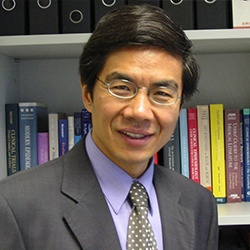 JIN-LIN-TANG
JIN-LIN-TANG
What is your most proud or significant research achievement?
How Often Are Ineffective Interventions Still Used in Clinical Practice? A Cross-Sectional Survey of 6,272 Clinicians in China. March 22, 2013 https://doi.org/10.1371/journal.pone.0052159
We found most ineffective (or very likely ineffective) therapies were widely used in the country and doctors could be sharply divided regarding some of the interventions. This is an important message and meaningful today but has unfortunately received little attention.
How is overdiagnosis and overtreatment affecting your field in your country?
I am trained in public health and epidemiology. Over-diagnosis and over-treatment provides us new opportunities for conducting research, for critically analysis of medicine and for making a difference to medical practice.
What is your favourite place or thing to do in Sydney/Australia? If this is your first visit, what are you most looking forward to seeing or doing?
Wandering around the Harbour Bridge area and testing the food around. Trying a bookshop is not bad thing to do either.
What is your favourite place in the world?
Hangzhou, China.
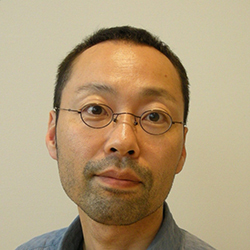
KOTA KATANODA
From the National Cancer Centre Japan, who will deliver lessons from Japan’s epidemic of overdiagnosis of neuroblastoma.
What is your most proud or significant research achievement?
“Tobacco White Papers”, published by the Ministry of Health, Labour and Welfare. I worked for this comprehensive evaluation report on the health effects and control measures of tobacco smoking as one of the principal editors.
How is overdiagnosis and overtreatment affecting your field in your country?
Dishonorably, Japan has many examples of overdiagnosis and overtreatment. Formerly we had a national screening program of neuroblastoma for infants. Currently opportunistic PSA screening for prostate cancer is prevailing in spite of the low recommendation level, and a thyroid ultrasound examination program is being done for children and adolescents in Fukushima, where a nuclear power plant accident occurred in 2011.
What is your favourite place or thing to do in Sydney/Australia? If this is your first visit, what are you most looking forward to seeing or doing?
I want to try BridgeClimb, and want to see Uluru, if I have a chance.
What did you want to be when you grew up?
Airplane pilot. I gave up the dream because I got near-sighted.
What do you like to do in your down time?
I watch comedy shows or suspense movies.
From Australia
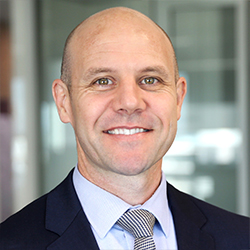 ADAM ELSHAUG
ADAM ELSHAUG
Global expert on low-value care, based at the University of Sydney in Australia.
What is your most proud or significant research achievement?
Two part answer. Sorry. First I’d say the application of patience yet persistence over more than a decade to have the concept of overtreatment not only accepted within policy circles but acted upon by policy makers, particularly in Australia. Second, this year two of my PhD students had their doctoral theses pass examination, both with strong commendation. They have taken the science of overtreatment to a new level and it’s been a blast seeing them do so.
How is overdiagnosis and overtreatment affecting your field in your country?
It’s not hyperbole to say that only a decade ago those of us speaking out and researching about overdiagnosis and overtreatment felt somewhat on the fringe of mainstream. Perhaps less so in policy and health services research circles but definitely within clinical spheres. We copped a lot of resistance and hostility. Today that has flipped 180 degrees and those with entrenched positions denying the problem find themselves fringe dwellers. There has been a ripple effect of awareness and acceptance, buttressed by good research and advocacy that now sees overdiagnosis and overtreatment central in research, policy and practice deliberations. It’s inescapable and that’s a wonderful thing.
What is your favourite place or thing to do in Sydney/Australia?
I have two little ones so we spend a lot of time at the beach. But toddlers don’t love big waves so the inner harbour beaches are real gems. Even if you’re a big kid I suggest you check out Balmoral beach, Neilson Park (Shark beach – but don’t worry there’s a net) and our little secret, Castle Rock. And, anyone flying in for PODC MUST do the ultimate jet-lag recovery exercise of the Bondi to Coogee walk - go there [almost] straight from the airport! Good coffee is at both ends of the walk!
What is something that others may be surprised to learn about you?
Hmm… that I am a ‘FiF’ (first-in-family) to attend University and it almost didn’t happen. I left high school (in Mt Gambier, country South Australia) after year 11 and worked in an aluminium smelter as an industrial tyre fitter for a year before deciding to go back to complete year 12. After year 12 I deferred university to work another year in the same job to save money for a move to Adelaide for university.
What is your favourite cuisine?
In Australia we are spoiled for choice but given I’m dairy free I find myself enjoying SE Asian cuisine more and more – Vietnamese and Thai particularly. After living in north America for a while I came to appreciate Mexican food, one of the few cuisines not as prominent in Australia, unfortunately.
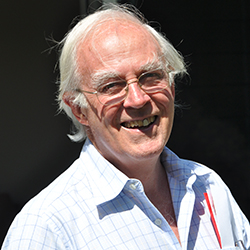 MICHAEL SHIRLEY
MICHAEL SHIRLEY
Citizen advocate, who has been overdiagnosed with prostate cancer, based in Sydney.
What is your most proud or significant research achievement? (if applicable)
Deep reading of the research material and many books on the subject of PCa, revealed, to my surprise, many doctors, researchers and the scientist who discovered PSA were all concerned that the urologists had started surgery as the gold standard therapy for PCa when there were other equally effective therapies and in some cases no therapy at all was the right thing to do! Dr Richard Aibling (who discovered PSA) wrote a book “The Great Prostate Hoax”, clearly furious at the way his discovery was being misused.
How is overdiagnosis and overtreatment affecting your field in your country?
Thousands of men have been subjected to surgery with no life extension advantage, but with seriousside effects that cause erectile dysfunction, urinary incontinence, divorce, depression and suicide.
What is your favourite place or thing to do in Sydney/Australia?
Spend quality time with my huge family (28 persons).
What is something that others may be surprised to learn about you?
I developed a glider towing aircraft powered by an automotive engine and received approval from CASA to build more - a world first.
What is your favourite cuisine?
Italian
 ROBYN WARD
ROBYN WARD
A global authority on genomics and cancer, the chair of Australians powerful regulatory body, the Medical Services Advisory Committee, and Executive Dean, Faculty of Medicine and Health, University of Sydney.
What is your most proud or significant research achievement?
Lots of research achievements as measured in grants and publications or discoveries but my proudest achievements is seeing higher degree students soar – doing wonderful things and changing the world in small or large ways.
How is overdiagnosis and overtreatment affecting your field in your country?
I am an oncologist – so I see overtreatment as a significant but subtle aspect of oncology. Dying with dignity, making realistic choices in a world where the cost of cancer care is escalating beyond our wildest imagination. I have seen the push to treat with my own relatives – against their wishes –if as an oncologist I couldn’t get the message across to treating doctors then who can?
What is your favourite place or thing to do in Sydney/Australia? If this is your first visit, what are you most looking forward to seeing or doing?
I am from Sydney – it’s the harbour - a ferry ride is unbeatable.
Name three things you would change in medicine?
The hierarchical nature of the medical profession
The influence of industry
The “treat no matter what the cost” ethos
What is your favourite cuisine?
Fish, prawns - anything from the sea plus mashed potato and vegemite – is that a cuisine?
RACHELLE BUCHBINDER
A champion of evidence-informed decision-making and the dangers of overdiagnosis and unnecessary care in the world of musculoskeletal conditions, based at Monash University.
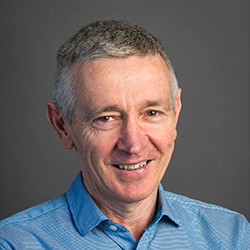 CHRIS MAHER
CHRIS MAHER
World expert on overdiagnosis and overtreatment in the world of physiotherapy. Professor at the University of Sydney.
What is your most proud or significant research achievement?
I am really proud of all the amazing PhD students and postdocs that I have worked with.
How is overdiagnosis and overtreatment affecting your field in your country?
In the back pain field misunderstandings, vested interests and healthcare funding encourage the wrong care, and limit timely access to the right care.
What is your favourite place or thing to do in Sydney/Australia?
I enjoy running and there are some brilliant places to run in Sydney.
What would be your best advice for early career researchers?
Be bold and brave. Take a risk. Seek out the best people in your field to work with.
What is your favourite cuisine and why?
I can eat anything except pasta or noodles. The texture gets to me.
 ROBIN BELL
ROBIN BELL
Professor Bell is Deputy Director of the Women’s Health Research Program at Monash University and has published over 200 peer-reviewed manuscripts in women’s health.
What is your most proud or significant research achievement?
I think my proudest achievement is still being here! So still working in research after literally decades of chasing research grants! I am also very proud of the many students I have supervised or mentored over the years- watching them go on to a diversity of work in research, clinical medicine, government and industry is very rewarding.
How is overdiagnosis and overtreatment affecting your field in your country?
I remain very concerned about the net impact of mammographic screening on Australian women. I am encouraged by the fact that people are now willing to discuss the issue of over-diagnosis in this context, whereas some years ago the topic was dismissed as trivial. We need to do a lot more research and education in this area.
What is your favourite place or thing to do in Sydney/Australia? If this is your first visit, what are you most looking forward to seeing or doing?
I am fortunate to live in Australia, although I live and work in Melbourne, not Sydney. There is a long-standing rivalry between the cities of Sydney and Melbourne and despite Sydney’s many assets, Melbourne consistently outranks Sydney in terms of the world’s most liveable cities. There are so many beautiful parts of Sydney though, and this time I am keen to visit Wendy Whiteley’s garden at Lavender Bay.
Who is or was your role model?
I have had the privilege of working with many talented clinicians and scientists and so it is difficult to name just one, as many of them have influenced my thinking and my work. However, the one who was most influential in terms of me choosing a research career was Judith Lumley, someone who championed evidence-based medicine even before the Cochrane Collaboration existed. I first met Judith when I was an undergraduate medical student and she was a generous mentor to me for decades. There is a research centre named in her honour at La Trobe University in Melbourne.
What do you like to do in your down time?
I try to keep fit and I like to grow food in my garden. Hard physical work in the garden is an excellent antidote to hours in front of a computer.
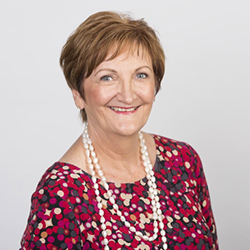 SANCHIA ARANDA
SANCHIA ARANDA
Regarded as one of the world’s pre-eminent experts in cancer control, Professor Sanchia Aranda is CEO of Cancer Council Australia, the immediate Past President for Union for International Cancer Control and inaugural Board Chair of the Cancer City Challenge Foundation.
What is your most proud or significant achievement, research or otherwise?
I think the most significant achievement for Cancer Council Australia is gaining Federal Government in a national campaign to raise awareness of the national bowel screening program.
How is overdiagnosis and overtreatment affecting your field in your country?
Overdiagnosis in cancer is a complex issue as we want to avoid giving a cancer label to someone with a lesion that will never become problematic but at the same time getting the balance wrong may result in unnecessary deaths. The holy grail in cancer is early diagnosis and the pursuit of this has been part of the reason for improved survival but technology now enables early and early diagnosis at a point where the true ‘malignant’ nature of the cancer is unknown.
What is your favourite place or thing to do in Sydney/Australia? If this is your first visit, what are you most looking forward to seeing or doing?
I am a New Zealander by birth but have lived here for 40 years. My favourite Australian place is Uluru – a truly spiritual place.
What is your favourite cuisine?
Nothing specific. I am a foodie so the criteria for me are not type of cuisine but about how well the fresh ingredients are brought to life.
What do you like to do in your down time?
As above – I am an amateur cook and love to set myself challenges ranging from creating degustation dinners for and with friends to recreating Zumbo desserts.
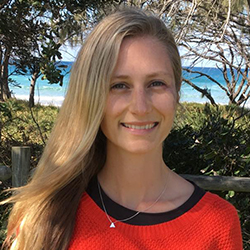 TESSA COPP
TESSA COPP
PhD candidate at the University of Sydney. Investigating the impact of the polycystic ovary syndrome (PCOS) disease label on psychosocial outcomes and decision making.
What is your most proud or significant research achievement?
My most significant research achievements were when my first PhD paper entitled “Are expanding disease definitions unnecessarily labelling women with polycystic ovary syndrome?” was accepted for publication in the BMJ and I was the recipient of the University of Sydney’s School of Public Health student publication prize.
How is overdiagnosis and overtreatment affecting your field in your country?
The current diagnostic criteria for Polycystic Ovary Syndrome (PCOS) include women with mild or transitory symptoms and likely at very low risk of future illness. The benefits of diagnosing these women are unclear and the harms are often underestimated. PCOS is considered a lifelong condition with no cure, and is associated with obesity, type II diabetes, metabolic syndrome, infertility, pregnancy complications and more. A permanent label of PCOS for these women with mild or transitory symptoms may cause more harm than benefit, inducing unnecessary fear and anxiety about future fertility and long-term health. For example, fear of infertility can result in undue stress and worry, pressure to alter one’s life plans, risk taking with contraception and unintended pregnancies, resulting in difficult, life-changing choices. It is vital these potential harms are acknowledged and researched alongside the potential benefits. This will help maximise the benefits that come with an appropriate diagnosis for women with significant symptoms and reduce the unnecessary disease labelling of healthy women unlikely to benefit.
What is your favourite place or thing to do in Sydney/Australia? If this is your first visit, what are you most looking forward to seeing or doing?
Hmmm, so many to beautiful places and things to do in Sydney! The 10km bush walk from Spit bridge to Manly is pretty amazing, and a brilliant way to experience Sydney’s beautiful harbour. You’ll often find me on a Saturday morning running at Park Run in Sydney park followed by coffee in one of the many excellent cafes nearby. When I am feeling less active though, spending a day in the sun at Gordon’s Bay or sampling the craft beer at the local breweries in Marrickville with friends is great fun.
What is your favourite cuisine?
Hard to pick just one cuisine as Sydney has such an incredible range to choose from! As I love spice though, it probably has to be Thai! King street in Newtown near the University of Sydney has at least a dozen Thai restaurants, all of which are delicious.
What is something that others may be surprised to learn about you?
I am a big fan of the world game and have played soccer every winter since I was 12 years old in one of Sydney’s first all-girls teams. I still play with some of those same team mates today!
